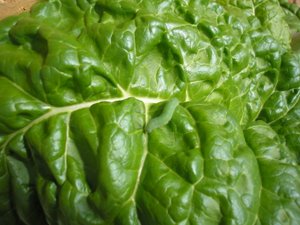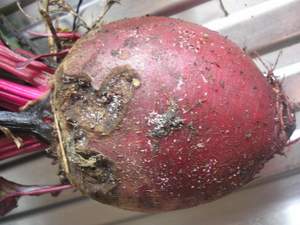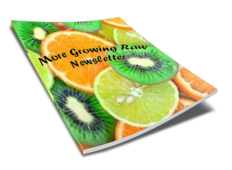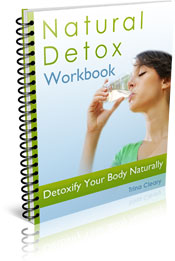|
Organic Gardening Pest ControlNatural Yet Effective Organic Pesticides
There are tons of safe and natural organic gardening pest control alternatives to keeping unwanted pests out of your garden. Organic pesticides give you peace of mind, an answer to your problems, and organic pure food as a reward for keeping nasty toxins out of the soil. 
It may seem like such a great idea at first to create your very own organic garden. You may envision connecting with nature on sunshiny days while caring for an abundance of nourishing food for both you and all of your loved ones. However, the moment that you realize that some determined bugs are munching on your beloved veggies or fruits before you have a chance to enjoy them yourself, destroying all of your long hours of hard work, it is easy to be tempted to declare war. Your first reaction may be to reach for the quick fix of harsh chemical pesticides and show those bugs who is boss. Please don’t! A healthy foundation is crucialThe importance of starting from the ground up cannot be stressed enough. Make sure you take the time in the beginning to create the strongest and healthiest foundation for your garden as possible by nurturing it with rich compost. A healthy soil creates an environment for healthy plants. It is important to get rid of any weak or diseased plants right away, as these will attract insect infestations. Keep your garden clean of weed piles and other brush, as these are ideal breeding grounds for pesty insects. Use a seaweed mulch liberally, as not only does it help to build strong soil full of minerals, but it repels slugs at the same time. Make sure that you water early in the day, so that the plants receive the water that they need to flourish, but that for most of the day the soil stays nice and dry. Many insects thrive in a damp environment, and you don’t want to make it easy for them to get really comfortable in your garden. Beneficial insectsOnce you have a great start and you have made the most of your soil foundation, keep nature in balance by using beneficial insects and biological pest controls. A great example is ladybugs, which can be brought or lured into the garden to voraciously eat up destructive aphids, mites, whiteflies, and scale. You can easily purchase ladybugs from catalogs, or attract ladybugs naturally by planting beautiful daisies or tansies which they love. Praying mantis larvae can also be bought in garden stores or online. An adult praying mantis will happily consume just about any destructive pest, and in large quantities. Also, by planting flowers such as yarrow, black-eyed susan, and goldenrod in or near your garden, you can bring in hoverflies, which consume nasty aphids with a huge and feisty appetite. If you have issues with leaf-eating caterpillars, try luring into your garden brachonids, chalcids and ichneumon wasps (all tough to say and spell, but easy enough to get to come into your place by planting carrots, celery, Queen Anne’s lace and parsley). A very enjoyable way to keep nature in balance is to attract as many different types of birds and bats as you can, which will enjoy feasting on your undesired pests. Set up birdfeeders and bat houses in close proximity to your garden, and every time you see one of your new visitors, you can rest assured knowing that its lunch was probably many of your unwanted intruders. Natural liquid spray pesticides and soil additions
You can easily and inexpensively make your own non-toxic concoctions at home to keep pests under control. One simple and effective solution is to mix in a spray bottle one tablespoon of canola oil with a few drops of dish soap into a quart of water. Then spray your plants thoroughly, focusing on the both the tops and the undersides of the leaves. This organic gardening pest control oil will smother any insects and suffocate them. This also helps to clear up fungal diseases quickly, which if left unchecked, can get out of control quickly in a garden. If you have problems with slugs and snails, a classic tried-and-true method is to sprinkle diatomaceous earth around the edges of all of your garden beds. You are basically building a fortress to keep slugs and snails out, as the particles are tiny but sharp and pierce into the soft bodies of these problematic pests. To specifically get rid of pesty aphids which have a tendency to target roses, fruit trees, and flowers, grind up raw onions or garlic into a puree. Then soak this paste in some warm water overnight and strain. The liquid can be applied to plants to ward off insects. If you experience problems with mildew or mold growth, which can easily happen after a lot of rain or if you live in a humid area, spray raw apple cider vinegar on leaves or on top of the soil all around your plants. Another strong and effective mixture is to make a solution of tobacco and water, 1 cup pure tobacco with 1 gallon of water. Allow it to steep for at least a day or two until it looks like a weak brown tea. Apply liberally to the soil around all of your plants except for peppers, tomatoes or eggplants. An interesting natural pesticide happens to be found in the form of the chrysanthemum flower. Mums contain a neurotoxin called “pyrethrum” which directly shuts down the nervous system of bugs, making it a powerful remedy. All you need to do is boil some of the fresh or dried flowers of the mum plant for a few minutes, separate the flowers from the water and directly apply the liquid to all of your infected plants. There is such a multitude of safe and natural ways to keep your garden healthy, organic, and pest-free. Mother Nature is incredibly powerful, and it is always better to work with nature by using what it gives us than to try to fight against it with something chemical. By implementing some of these natural organic gardening pest control remedies, you can rest assured knowing that you are keeping toxic, harsh chemicals out of the soil, water supply, and most importantly your body while making your gardening work as enjoyable and simple as possible. Articles Related to Organic Gardening Pest Control - Natural Yet Effective Organic Pesticides:
|
Are you as healthy as you can be?
Take action to lift your energy and vitality levels beyond recognition.
Focus on
building healthy eating habits for just one month with
Veg Up and you’ll enjoy the effects for years. You will amaze yourself when you see how much more you can achieve.
More Growing Raw
Newsletter
Be sure to subscribe to "More Growing Raw" newsletter to receive monthly healthy eating tips, Growing Raw news and updates.
Most Popular Articles
- Green Smoothie Health
- Raw Food Health Levels
- Growing Vegetables in Containers
- Healthy Eating Plans
- List of Healthy Food to Always Eat Organic
- Growing a Vegetable Garden in a Polytunnel
- All Natural Detox Diet
Does your body need a fresh start?
Brighten up with all natural detox routines that give your body a cleansing push towards healthier patterns.
Learn how to
detoxify your body naturally. Your body is smart enough to clean itself without expensive detox pills and potions.








